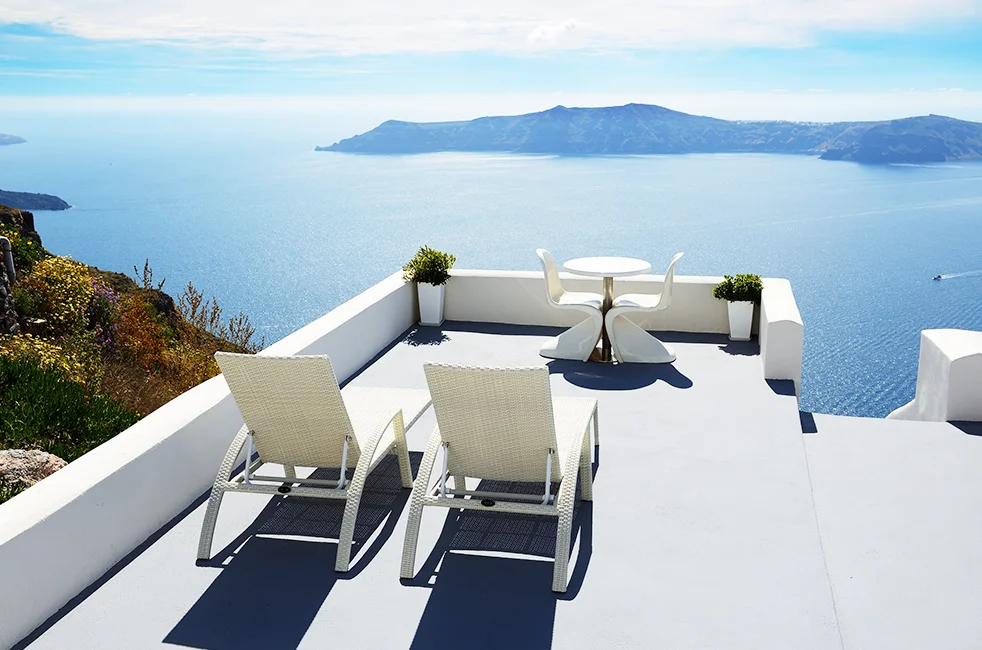Chlorinated rubber waterproofing: Is it the right choice for your project?
Chlorinated rubber is one of the most budget-friendly waterproofing systems available. It typically comes as a chlorinated rubber-based waterproof paint applied in multiple coats to form a moisture barrier. While attractive due to its low upfront cost, this system presents serious limitations that compromise long-term performance and durability.

Comparison
Chlorinated Rubber Waterproofing
- Low cost, but with technical limitations
- Short lifespan
- Weather-dependent installation
- Incompatible with other systems
- Weak performance at critical points
Revestech solution
- Exceptional durability
- Fast, weather-independent installation
- Total compatibility
- Reinforced protection at corners and junctions
Advantages and disadvantages of chlorinated rubber waterproofing

Low cost
The main advantage is its price, typically between €6 and €7/m² depending on the number of coats. It’s one of the cheapest options short-term—but this comes with major performance trade-offs.

Eco-friendly and sustainable
Revestech waterproofing membranes are made with recyclable materials and offer a more sustainable and environmentally conscious alternative—something chlorinated rubber or bituminous systems cannot guarantee.

Limited durability
Chlorinated rubber can begin to degrade in under a year, requiring frequent repainting or repair. Its short lifespan leads to recurring maintenance and hidden long-term costs.

Weather-dependent application
The surface must be completely dry before application. Rain or humidity during the process can ruin the installation, forcing full removal and reapplication.

Compatibility issues
Chlorinated rubber is chemically incompatible with most other waterproofing systems. If a new layer is needed later, the existing product must be removed first—adding complexity and cost.

Weakness in Critical Points
Corners, junctions, and irregular surfaces are especially problematic. The product is prone to cracking in these areas, resulting in leaks and compromised protection.
The advantages of Revestech waterproofing membranes over chlorinated rubber

Superior durability
Revestech membranes deliver more than 50 years of performance with no degradation or need for regular maintenance—making them a smart long-term investment.

Weather-Resistant Installation
Unlike chlorinated rubber, our membranes can be installed in various weather conditions without risk. No dry substrate required. No delays.

Full compatibility
Revestech membranes can be installed directly over many existing surfaces and are compatible with other waterproofing systems, avoiding future complications.

Reliable at Critical Points
Designed for perfect adaptation to corners, joints, and junctions—Revestech membranes maintain watertightness even in the most vulnerable areas.
Chlorinated rubber may appear cost-effective, but its short lifespan, weather-sensitive installation, and constant maintenance needs make it an inefficient long-term solution.
Revestech membranes offer fast installation, over five decades of durability, and robust protection under all conditions—no surprises, no rework.
Protect your project with the most advanced waterproofing technology. Choose Revestech.
Frequently Asked Questions
What is chlorinated rubber waterproofing and how does it differ from other systems?
It involves applying multiple layers of chlorinated rubber paint to form a waterproof coating. In contrast, Revestech membranes provide instant, reliable waterproofing in a single layer—lasting over 50 years without maintenance.
Where is chlorinated rubber commonly used?
It’s typically applied to low-traffic areas like roofs, terraces, or water tanks due to its low cost. However, performance rarely exceeds one year. For long-term solutions, Revestech membranes are far superior and better suited for demanding or high-traffic zones.
How is it applied?
With a brush or roller on a clean, completely dry surface—usually in two or more coats, which extends the timeline. Revestech membranes install faster and offer immediate waterproofing without waiting between layers.
Is chlorinated rubber resistant to chemicals or pool chlorine?
Only to a limited degree. Exposure to chlorine and aggressive agents can cause rapid deterioration. Revestech membranes are engineered for chemical resistance and remain effective in pools and tanks.
How long does it take for a layer of chlorinated rubber waterproofing to dry?
Each coat requires 24–48 hours to dry, and weather can delay the process. Revestech membranes only require drying time for the tile adhesive—making installation significantly faster.
Is it necessary to apply multiple layers of chlorinated rubber to achieve effective waterproofing?
At least two or three coats are required for proper waterproofing. Revestech membranes achieve full waterproofing with a single layer—saving time and labor.
What surface preparation is required before applying chlorinated rubber?
The substrate must be clean, dry, and dust-free. Any residual moisture compromises adhesion. Revestech membranes tolerate minor humidity and require far less preparation.
Is chlorinated rubber flexible and can it withstand structural movements or expansion?
Not well. Chlorinated rubber has limited flexibility and is prone to cracking under structural movement. Revestech membranes are highly flexible and built to withstand expansion without failure.
Is maintenance required for a surface waterproofed with chlorinated rubber?
Yes, frequent maintenance is needed due to rapid degradation. Revestech membranes require virtually no maintenance for over 50 years—saving time and cost long-term.



